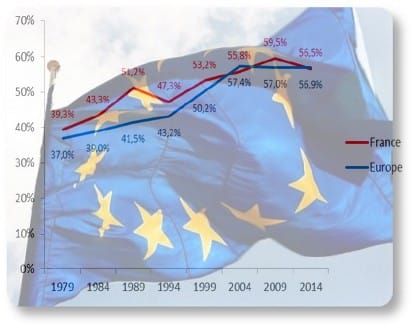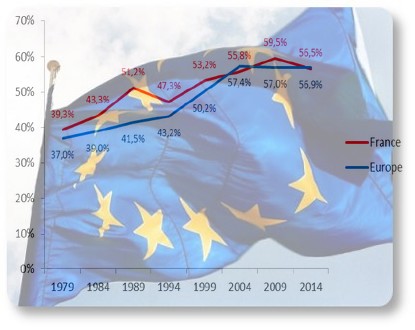The first rule of democracy is that the voter is always right and one must accept their choice, whatever it may be. That said, one should not forget that while democracy is a right (or should be wherever it is not always), the citizen should have the duty to express themselves through voting.
 Otherwise, if Alexis de Tocqueville, who was already denouncing in his works written in the first half of the 18th century the peril of what he called “the dictatorship of the majority,” we will inevitably fall into the opposite, “the dictatorship of the minority,” which, not coincidentally, had its mentor in Lenin who theorized it in “State and Revolution”.
Otherwise, if Alexis de Tocqueville, who was already denouncing in his works written in the first half of the 18th century the peril of what he called “the dictatorship of the majority,” we will inevitably fall into the opposite, “the dictatorship of the minority,” which, not coincidentally, had its mentor in Lenin who theorized it in “State and Revolution”.
Having said that, the current question is: What will be the consequences of this vote, and what should we expect from this “new” Parliament with the configuration granted by the vote?
Well, without wanting to downplay the political scope, there won’t be many changes to anticipate: despite its significant increase, the number of Eurosceptics remains vastly inferior to those who advocate for a future and a long future for the European Union and its institutions.
Poor Europe, blamed for all the world’s problems, especially those for which it sometimes bears no responsibility!
Should we remind that Europe, being not a State but an international institution through its institutional branches with the Parliament and the Commission which are its executive, only exercises the prerogatives that the member states have delegated to them?
That European commissioners are appointed by the States and only validated by the Parliament? That the creation of the euro and ECB were deliberated by the Council of Heads of States and Governments and exercise a role and a mandate that the states which chose to participate in the Eurozone and accepted the common currency (proof being not all are part of it) have conferred upon them? That there exists a principle of opting in/out which allows to accept or reject a deliberation? That the famous European directives must be voted by the national Parliaments before having legal value?
So to what “sovereignty” is one appealing?
And, regarding this “moloch” which is the technocracy of Brussels and other community seats, there are about 20,000 people. Shall we risk a comparison with the staff of some of the major European cities?
So, if one seeks to understand the completely legitimate vote that has favored the Eurosceptic parties in France and other countries, one should think that it’s quite probable the voters have mistaken the election!
And that the “no” is the result of propaganda focused on moral fundamentalism and the rhetoric of the virtuous people and the corrupted elites.
Besides, nothing truly changes. Just read or reread “The Finances of Greek Cities” (Leopold Migeotte, Université de Laval, Quebec) to find the same situations at the time of the first democracy.
Now, Eurosceptics are expected to face the test of truth: Transition from protest to proposal, where the anti-euro, anti-immigration, and anti-globalization watchwords will not suffice.
by Garibaldino



